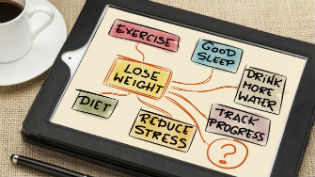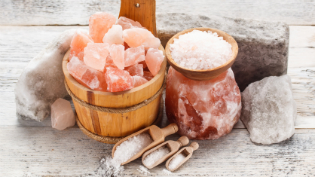
33 Tips to keep your Kitchen healthy

Health is wealth. This has been a statement preached upon for millennia, but did you know that a healthy kitchen is also a wealthy kitchen?? We generally take a clean looking, spic -and -span kitchen free of bacteria, but what meets the eye is not always true. The home kitchen is a petri-dish for microbes to grow and cause foodborne illness.
Just cleaning your cooktop, raw food and hands is not enough; other activities are to be followed to keep your kitchen healthy. Pin up the following points on a convenient place for easy guidance. Let’s look at your kitchen as if it were a living creature (it actually is!) and consider all parts of kitchen to be like organs of your body. Let’s see what care each kitchen organ requires, to perform healthily:
The heart: Cooktop
Cooking range(stove) is the heart of any kitchen (it’s the essential component without which a kitchen cannot function!) You would want your heart of kitchen to function well wouldn’t you? Baking soda comes to the rescue.
- First, wash with soap, sprinkle baking soda, add hot water and cover with a towel. Let it stand for 30 minutes. Clean it all up. What is left behind is a grease free, cooking range.
The lungs: Refrigerator
In our body, heart and lungs are a team. The same is with cooking range and fridge. These two together bring the kitchen to life . Keeping your fridge clean is of high importance. In fact studies show that it is one of the most neglected equipment in kitchen. Did you find a science experiment growing on leftover food , the last time you cleaned your fridge? So how do you prevent this ?
- Clean the back of fridge, the door and not to forget handles (as often as possible as these come most in use)
- Shelves to be cleaned with 2 tbsp of baking soda in 1 litre of water (avoid using soap as it leaves behind an odour).
- If your fridge smells bad, open a box of baking soda and keep it in the fridge, soda will absorb all bad odours.
- Make sure food in the fridge is kept covered to avoid changes in it’s flavour.
- Defrosting depending on load of the freezer.
- Clean ‘food spills’ immediately to prevent cross-contamination.
- Cleaning should be done thoroughly and the frequency depends upon the usage of fridge.
The liver: Sinks and drains-
The kitchen is redundant without a sink just like your body without a liver. Where would all the waste go?
- Make sure the sinks are cleaned after use. The area surrounding the sink (this is the perfect pool of all harmful bacteria) has to be cleaned more often than your hands. Choked drains can be a national disaster in a kitchen, so keep it clean and free of obstructing particles by regular use of drain cleaning agents. Do not use drain cleaning agents very often as this can corrode your drain pipe.
- Keep a drain trap in sink for collecting food particles and other residue.
- Never throw fats, oil and grease (FOG) down the drain! Give it away for recycling if you have a unit in your area or let it go to your bins in a separate cover/ container.
The pancreas: Microwave/oven
Just like the way your pancreas produce insulin to bring down your sugar level, the microwave works to bring down your cooking and reheating time! It deserves care, does it not? And how do you do that?
- Splatters of food from microwaving look bad, smell bad, and decrease the efficiency of your microwave.
- First is to clean the inside of the microwave, and the magic ingredient is lemon! Yes, just microwave lemon juice in some water along with the rinds for 3 minutes, let it stand for 5 min and then clean microwave internally with a dry cloth. Don’t forget to wipe the handle. Wasn’t that easy peasy.
- Oven trays should be cleaned in warm soapy water after each use.
The bones: Cabinets and cupboards, kitchen appliances ( juicer,grinder)
Your bones give a stance to your body and so do cabinets which give a dimension to your kitchen , carrying your groceries, dry foods, your secret candy stash and adding style to it. So make sure you keep your “stylist” in good shape and condition by regular cleaning. Some tricks for cleaning are:
- Soap and water mix. Undiluted vinegar to remove grease.
- One part oil to two parts of vinegar, apply this onto the greasy area and rub it with a toothbrush.
- Also, cleaning of containers, wall mounted racks and other storage areas is important and to be done fortnightly. Kitchen appliances include juicers, grinders, cutters, utensils and all fancy gadgets to make cooking more appealing (not to forget knives and peelers!). These have to be cleaned immediately after use and wiped dry and stored in a dry place to ensure good working and less break-downs.
The kidney: Sponges and soap
Your kidneys are the cleaning and filtering organs in your body. Same are your scrubbers, sponges and napkins. You must keep clean what you clean with. Napkins have to be changed once damp and stained. Sponges, scrubs, bar soaps (if used) have to be cleaned by day end and scrubbers is the “big club” for bacteria which holds not just loads of moisture but bits of food too. And how would you do that?
- By putting damp sponge/wiping cloth in microwave on high power for 1 minute.
- By soaking in lime juice for 5 minutes and then rinsing.
- By using soap and rinse of hot water.
So make sure you clean them up before you tuck into bed with your book or warm cocoa milk.
Shop smart:
Safety begins at the grocery store.
- Shop your perishables like frozen foods and meat in the end and should be immediately refrigerated once you reach home.
- Don’t buy dented or puffed cans, cracked eggs and ALWAYS check for expiration date of a product.
Cook Smart:
It is not just important to cook healthy, but to cook safely deserves equal stance. Some tips for safe cooking are:
- Washing raw foods well before cooking, but before that remember to wash your hands as well!
- Using separate cutting boards for veggies and meats, so that no cross-contamination between the two can occur. Most food poisonings happen because this simple rule is neglected.
- Using low flame/ power for thorough cooking and less charring. Conserve energy.
- How do you thaw frozen meats? On tabletop or warm water ? If your answer is yes, then you have been doing a ‘food safety sin’. The right way is to take meat out of deep freezer and thaw it on the refrigerator shelf. Doing so will ensure the meat is safe. Hence, plan your cooking in advance.
- Avoid under cooking, especially for meats and dairy foods to prevent food poisoning.
Store Smart:
Proper storage leads to longer food life in your kitchen. Some tips you can follow are:
- Not overstocking your fridge as this will increase your fridge temperature, decreasing your food life.
- Keep a check on all stored foods for expiration.
- Always store cooked food on upper rack and raw food on lower rack of the refrigerator.
- For storing cooked foods, put into smaller containers for quick cooling while keeping in fridge.
- Store eggs on rack in the back of fridge as this part remains coolest, that egg tray you have on side door is not the place! As constant opening of door changes temperature of that area making it warmer than the rest of fridge, thus putting the eggs at risk of spoilage.
- Wrap / cover leftovers and try using them within 2-3 days. ( ideally one must cook adequate/consumable portions and avoid eating leftovers)
Now you are ready to own a healthier kitchen. Stick to the four magic words, “CLEAN, SEPARATE, COOK, CHILL”. So what are you waiting for? Go ahead, create your healthy kitchen!!

















